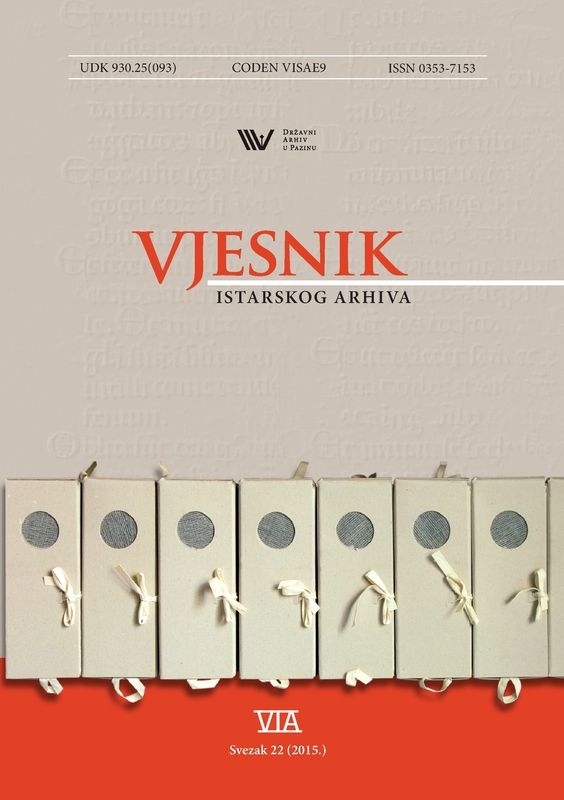A ruthless facet of Fascism: electoral manipulations in the Boljun area
Keywords:
parliamentary elections, Fascism, Boljun, Istria, 20th centuryAbstract
The Istrian political and social lives in the first half of the 20th century saw several stages of development, with the parliamentary period being of extreme importance as it represented a milestone which opened the door to the totalitarian fascist regime. Within the framework of an accentuated politicisation of Istria, the Croatian-Slovenian People’s Party had the greatest number of members. However, confronted with the advancing danger of its possible victory, on the eve of the Italian general election in 1921 a part of Italian civic parties joined into the Istrian National Block, which brought advantage to the Fascists. Unavoidable material to study the dramatic pages of the peninsular, and hence Boljun’s history can be found in newspaper articles and particularly in archival sources kept by the State Archives in Pazin. These provide understanding of the circumstance in which the 1921 and 1924 general elections were held. Fascists managed to ensure double victory, however not owing to the concrete support of the people – their results were obtained on the basis of ruthless behaviour towards their constituents consisting in deportation, violation of electoral laws and manipulation of votes. The Italian government used a range of repressive measures to implement assimilation policy, to exterminate Croatian spirit, language and culture and to mercilessly destroy institutions which fostered Croatian national feelings. Cultural violence was supported by the Mayor of Boljun, Francesco Ferranda, who advocated abolition of Croatian elementary schools and opening of Italian ones. Just like the citizens of other Istrian municipalities, the citizens of Boljun had to face, in this newly arisen political situation, not only illegitimacies and loss of voting rights, but also mass deportations, abuses and humiliations which became an integral part of their turbulent everyday life. The implementation of repressive measures that was to accelerate the process of assimilation in every field and the imposition of Italian nationalism defined the fate of the oppressed population, leaving behind a deep impression in their metal framework.
Downloads
Published
Issue
Section
License

This work is licensed under a Creative Commons Attribution-NonCommercial 4.0 International License.

